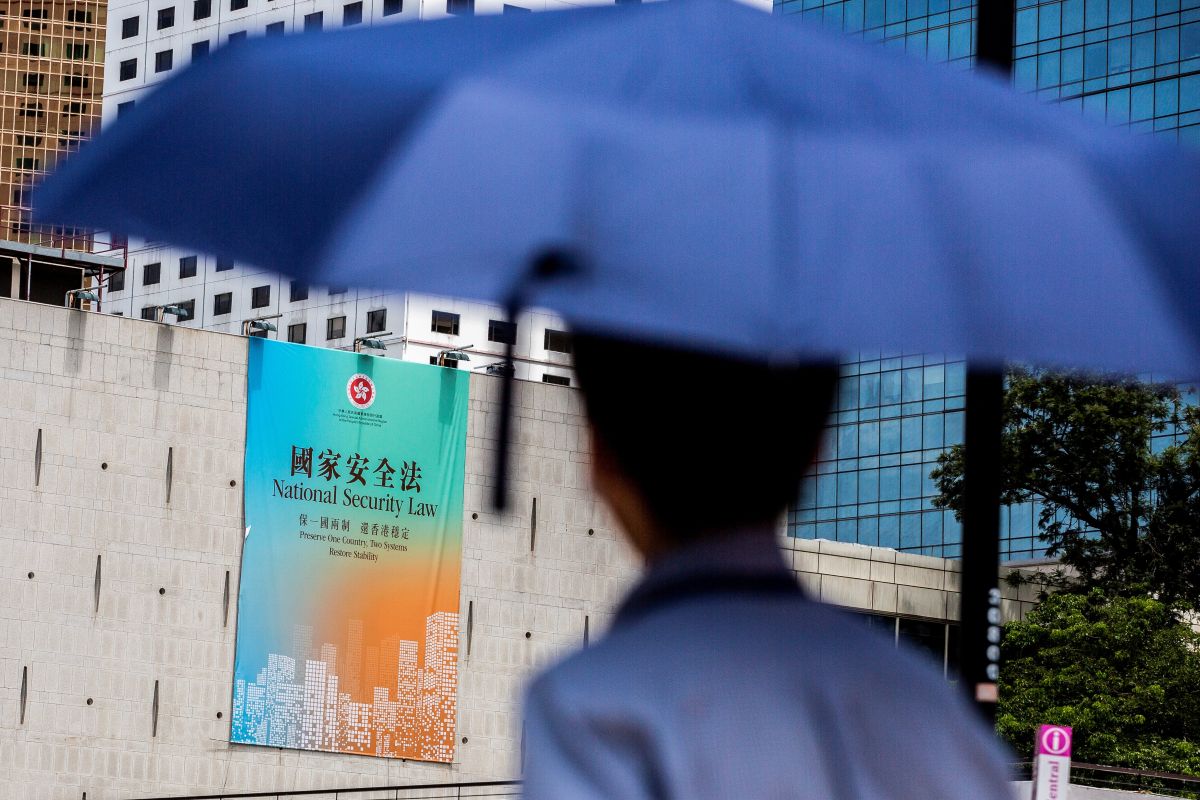The US-China diplomatic ties continue to go through rough patch on various issues as the latter warned on Monday that it would impose visa restrictions on US citizens who had “behaved egregiously” over Hong Kong, ahead of expected approval from Beijing lawmakers for a controversial national security law in the city.
China is moving forward on a security law that would enforce punishment for subversion and other offences in Hong Kong, which was rocked by massive and sometimes violent pro-democracy protests last year.
Advertisement
The development comes after US President Donald Trump’s administration on Friday said it was restricting US visas for a number of unspecified Chinese officials for infringing on the autonomy of the financial hub.
Foreign ministry spokesman Zhao Lijian said Monday that the US “scheme… to obstruct the passage of the Hong Kong national security law will never prevail”.
“To target the US’s above wrongful actions, China has decided to impose visa restrictions against American individuals who have behaved egregiously on matters concerning HK,” Zhao said.
Last month, US Secretary of State Mike Pompeo described China’s announcement to tighten its control over Hong Kong as unilateral, arbitrary and disastrous.
On May 22, China proposed a national security law for Hong Kong in response to last year’s violent pro-democracy protests that plunged the city into its deepest turmoil since it returned to Chinese rule in 1997.
The proposal, which has been condemned by the United States and Hong Kong pro-democracy figures as an assault on the city’s freedoms, was tabled on the opening day of the week-long National People’s Congress.
Earlier, Pompeo had also said that the proposed law, which China’s rubber-stamp legislature was expected to act on quickly, would be a “death knell for the high degree of autonomy Beijing promised for Hong Kong.”
The law gives China the authority to curb secession, subversion, terrorism, and foreign interference, something that was observed in pro democracy protests which gripped the city last year, according to the reports.
Hong Kong has been gripped for several years by political unrest and demonstrations, which had been gaining momentum in the months leading up to the coronavirus outbreak, which led to them being suspended.
The United States, Britain, the European Union and the United Nations rights watchdog all voiced fears the law could be used to stifle criticism of Beijing, which uses similar laws on the authoritarian mainland to crush dissent.
Last week, United States had designated top state-run Chinese media houses as “foreign missions”, terming them as “propaganda” outlets “controlled” by the ruling Communist Party of China, a move that came amidst diplomatic tensions between the two countries. The four Chinese media outlets designated as foreign missions on Monday are China Central Television, China News Service, the People’s Daily and the Global Times, taking the total number to nine. In February 2020, 18 designation of Xinhua News Agency, China Global Television Network, China Radio International, China Daily Distribution Corporation and Hai Tian Development USA.
Tensions between the two economic giants of the world has been high since President Donald Trump blamed China for not controlling coronavirus which had first emerged in December 2019 in Wuhan, China.
Since then the two countries have been indulged in a war of words regarding Hong Kong, Uighurs, Trade deals, and the pandemic.











